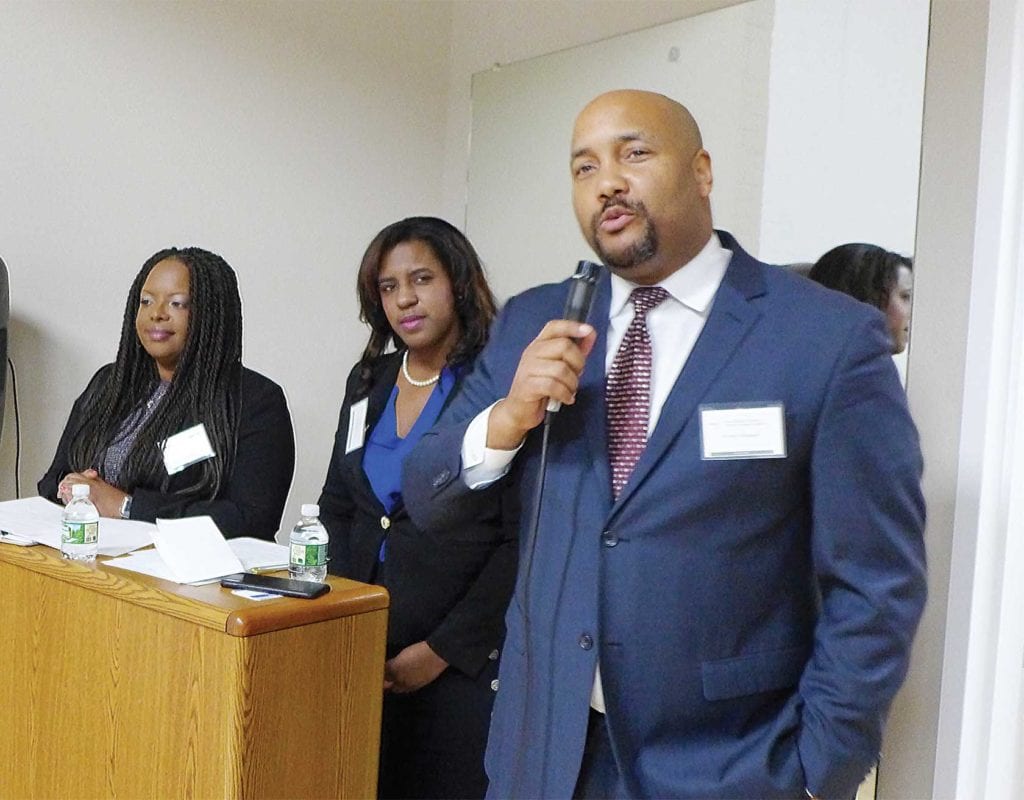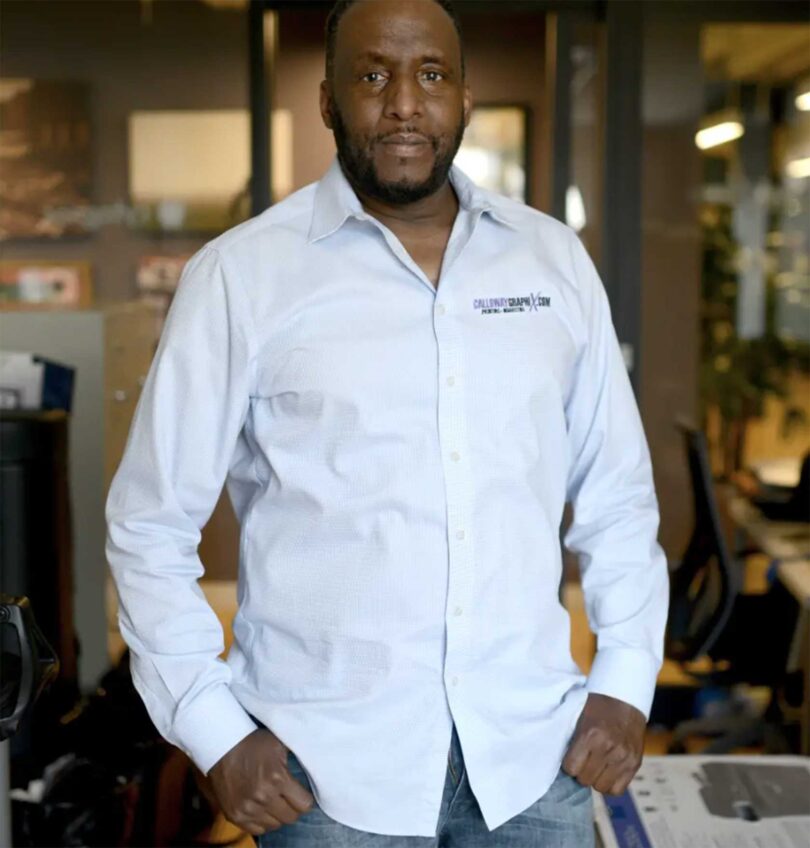
When Richard Champagne founded the Haitian American Chamber of Commerce of Massachusetts in 2017, he was just a small business owner hoping that future Haitian American entrepreneurs would have an easier time establishing their businesses than he did.
Now, just over two years later, the Chamber offers countless services to Haitian business owners and was the first Haitian American chamber of commerce in the state. Massachusetts has the third largest Haitian population in the United States, with around 90,000 Haitians living in the Greater Boston area alone. Around 5 percent are business owners.
Champagne says he got the idea to start the HACCM when he moved to Massachusetts from Florida three years ago and realized the Haitian community here needed an organization to serve, he says, as a “catalyst to promote some of the work that is needed in the business community.” He had started his law firm, Champagne Law Group, a few years earlier, and says he learned that going to law school does not mean you will be a good business owner. His aim in creating the Chamber was to help Haitian entrepreneurs capitalize on the resources available to them.
“Whether it’s grants available through the city, how to become a certified minority-owned business, whether it’s with the city of Boston, with the state, or even being recognized as a minority-owned business in the private sector,” Richard says, “the HACCM will help.” The organization offers seminars and workshops to its members, as well as hosting many community events throughout the year.
The information needed in the community changes depending on whether business owners and entrepreneurs as native-born or immigrants, says Vedna Lacombe-Heywood, HACCM’s vice president. “It’s also maneuvering,” she says. “Sometimes being a business owner in your native country as opposed to here, there is an information gap —so as a chamber of commerce I think it’s our duty to provide some of that information about how to navigate the system here.”
Lacombe-Heywood approaches the HACCM from a different angle than most traditional chambers of commerce. “A lot of times when we think of chambers we think of business as the umbrella, but a chamber involves many other things. It’s educating the community on city, county, state, national legislative and political affairs as well.” Heywood works as a registered nurse and also does community and service work with the American Red Cross, DCF, the NAACP and other groups. She says she was drawn to the HACCM after seeing how the Haitian community in Massachusetts came together to support an elected official at an HACCM event.
When asked what kind of businesses Haitians typically form in Massachusetts, Heywood names nearly a dozen, from medical offices to taxi and limousine services. As immigrants, Haitians are eager to start their own businesses and establish themselves, Champagne adds.
Looking forward, the HACCM plans to build alliances with other culturally based chambers, and stresses that although the Chamber focuses on Haitian business owners and entrepreneurs, all are welcome to join. “We want to promote diversity of membership, of specialty, because it creates innovation and cohesion that supports the needs of the business community,” Lacombe-Heywood says. “So often in our communities we work in silos, so in order to effectively serve our constituents, I think those dots have to connect.”
She added that the Haitian community earns half a billion dollars and contributes at least 300 million dollars in Boston alone to the city’s economy. And the younger generation of Haitian Americans seem to be going into business as well. While half are moving toward the corporate sector, the other half have entrepreneurial aspirations, Champagne says. Hence the need for the Young Diaspora Professional Committee, which the HACCM started last summer.
With the HACCM serving the second largest minority in Boston — a group with great economic power, though that is often underestimated in black and brown communities — it is certainly a group to watch.






